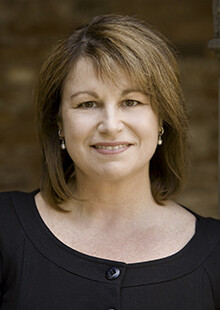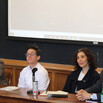Professor Schultz Launches Civil Rights Law Project and New Seminar

A new project led by Ford Foundation Professor of Law and Social Sciences Vicki Schultz and involving Yale Law students will examine the early work done by lawyers in the U.S. Department of Justice Civil Rights Division, Employment Litigation Section (ELS) — and analyze what that work might have to say for current and future civil rights law.
With exclusive authority to prosecute cases involving a pattern or practice of workplace discrimination under Title VII of the Civil Rights Act in its first decade, the lawyers of ELS worked tirelessly to dismantle deep-seated patterns of segregation and inequality in the American workforce, taking on structural discrimination in industries like steel, construction, trucking, and public utilities and later in police and fire departments and other city and state governments around the country. Lawyers built the law from the ground up, creating novel legal concepts like disparate impact, pattern or practice, and affirmative action to breathe life into Title VII. This new project aims to weave together the legal, political, and organizational history to show how a small, but dedicated group of lawyers can change America.

Schultz will offer a seminar in the Spring 2022 term called “Living Civil Rights Law,” in which students will engage with these pioneering lawyers themselves. Students will conduct interviews with former ELS attorneys in order to tell their stories and preserve the agency’s legacy, along with considering the far-reaching implications of ELS cases in the context of contemporary civil rights law.
“Students can use the foundational Title VII cases to think deeply about how to address contemporary discrimination problems, asking, for example, how the concept of a pattern or practice of discrimination developed by Civil Rights Division lawyers can be adapted to address the discrimination issues faced most frequently by LGBTQ folks today,” Schultz said.
In addition to publishing papers in an online forum, students may also disseminate their work and ideas through creative storytelling — in podcasts, videos, and blogs — beyond traditional written papers. The multimedia approach of the seminar encourages students to share their work and aims to satisfy one of Schultz’s goals for the project — building a community of people committed to civil rights law, and to creating an equal right to decent work for all people, at the Law School and beyond. Taken together, Schultz hopes that the project and seminar will integrate students into a larger, multigenerational community involved in advancing equal rights.
“In the wake of the recent uprising against racial injustice and the massive job loss suffered disproportionately by women of color during COVID, the seminar allows students to think about how the Civil Rights Division’s pioneering work to address structural racism in employment creates a foundation for tackling similar inequalities at work today,” Schultz said.
Students will also be needed to make Freedom of Information Act requests to obtain the materials needed for future iterations of the project. The project will extend beyond the spring seminar; students can participate for independent research or research assistant credit over the next year.
“I am humbled and thrilled to take on this project, which is something I’ve wanted to do for a long time,” Schultz said. “I am especially excited about the prospect of involving YLS students in the process of learning about and actually getting to know some of these extraordinary civil rights lawyers who helped transform the nation’s Jim Crow economy into a fairer, more open one for selecting American workers. Their story and work provide inspiration for what lawyers can achieve today."
Schultz was recently awarded an Oscar M. Ruebhausen grant to do this work on the history of the DOJ Civil Rights Division’s Employment Litigation Section, where she worked as a trial attorney prior to teaching law. The Ruebhausen Fund supports Yale Law School students and faculty projects and seeks to further innovative responses to changing societal needs.


